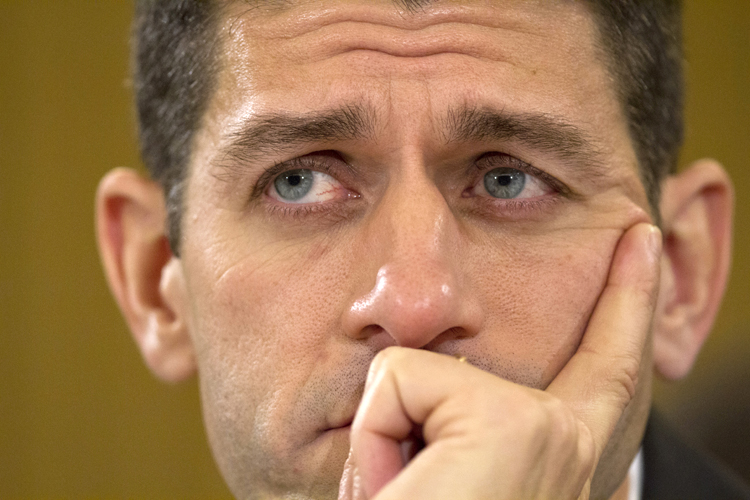Depending on your faith in the possibility of bipartisan cooperation in the Tea Party era, Congress is either close to a mini-budget deal that would keep the government open and ease the sequester cuts before the end of the year, or it isn’t.
TPM and Politico both report that Rep. Paul Ryan and Sen. Patty Murray are within sight of such a deal, though Politico cautions “there remains a distinct possibility that the effort will flounder, as so many budget deals have.”
There’s no grand bargain afoot, just small fixes that would reduce some of the sequester cuts and possibly cushion some of the impact on the deficit with “fee increases” rather than hiking tax rates or closing loopholes. Democrats want the final budget to be a little over $1 trillion; Republicans want it under.
Democrats have a little bit of leverage thanks to two facts: The next round of sequester cuts hit defense spending hardest, so there’s some thought Republicans are willing to compromise. GOP leaders are also horrified by the notion of another stalemate that leads to a government shutdown and torpedoes their standing in the polls. So there’s room for some optimism.
It’s worth noting that Murray traveled to Washington to meet with Ryan even though the Senate isn’t currently in session. That’s a nice bipartisan touch. “Patty’s coming back,” Ryan told Politico. “We’re talking, but it’s premature to say anything right now.”
But if Ryan is serious about running for president in 2016, and there are early signs he is, it’s hard to imagine him inking any kind of deal to restore social-program sequester cuts and increase government fees in a climate where the Tea Party still holds disproportionate power in the nominating process.
Consider what happened this week to Georgia Senate candidate Rep. Jack Kingston. He’s as conservative as they come, he’s voted to repeal the Affordable Care Act all eleventy-trillion times, and yet he had the audacity to suggest that Republicans might have to step up and propose their own healthcare solution, including fixes to what they least like about the ACA, instead of merely trashing the law.
A lot of conservatives say, ‘Nah, let’s just step back and let this thing fall to pieces on its own.’ But I don’t think that’s always the responsible thing to do. I think we need to be looking for things that improve health care overall for all of us. And if there is something in Obamacare, we need to know about it.
But he was attacked by his ultra-right rival, evolution-denier Rep. Paul Broun, and Red State declared he had “surrendered” on Obamacare. So Kingston walked his remarks back.
I’m on record as a Paul Ryan critic. I think his policy chops are overstated, and he’s at his core a far-right ideologue. I’ve never seen evidence of the kind of courage that would allow him to stand up to the Tea Party elements in the House GOP and sell this compromise. However, all he really has to do is sell House Speaker John Boehner on bringing it to a vote, because unless it contains something unacceptable to Democrats (and I don’t expect Murray to broker that kind of deal), it could pass the House with a combination of Democrats and non-Tea Party Republicans.
But if the Tea Party turns up the rhetorical heat, would Ryan risk a presidential bid to rescue the country from another government shutdown? I’ve never seen him stand up to that kind of ideological pressure from the right, but there could be a first time.

